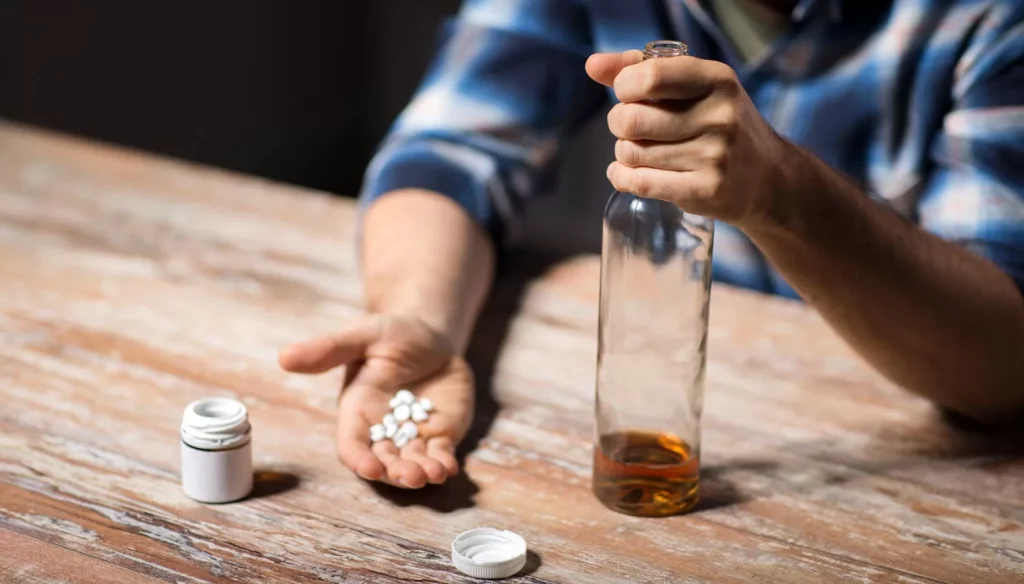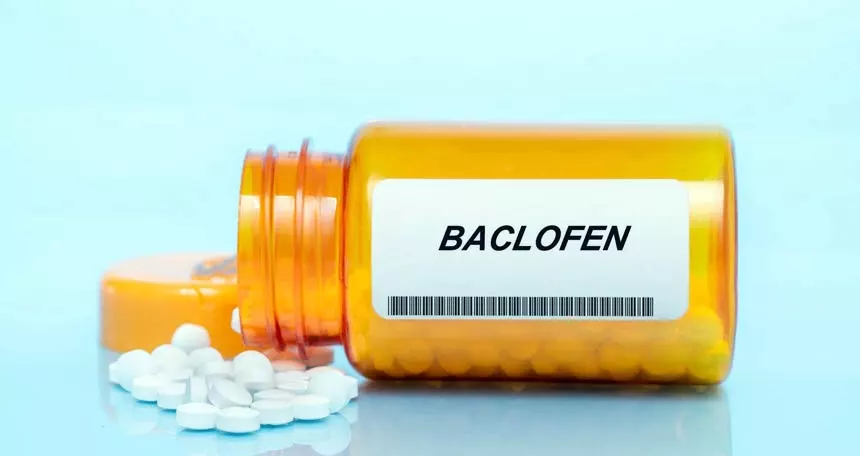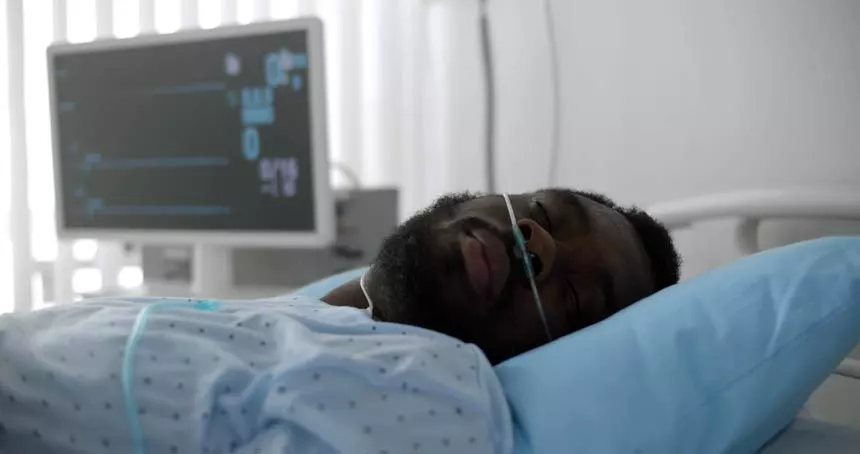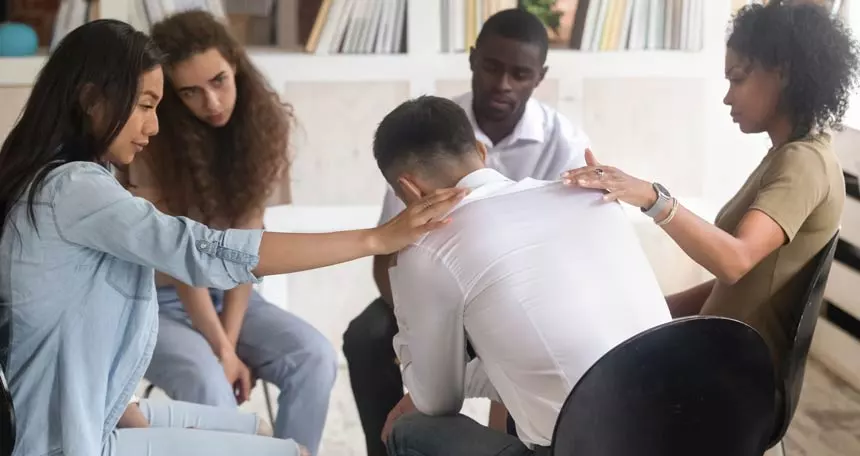Risky Drug and Alcohol Combinations
Table of Contents
- Risky Drug and Alcohol Combinations
- What Are Muscle Relaxers?
- How Do Muscle Relaxers Affect The Body?
- Muscle Relaxer Withdrawal Symptoms
- How Does Alcohol Affect The Body?
- What are Alcohol Withdrawal Symptoms?
- How Does Mixing Muscle Relaxers And Alcohol Affect The Body?
- Why Do People Mix Muscle Relaxers And Alcohol?
- The Basics of Drug And Alcohol Addiction Treatment
- What Does The Addiction Treatment Process Look Like?
- Finding Addiction Treatment Made Easy
Combining different drugs can bring on harmful consequences and unwanted effects for an individual. Drug combinations can intensify side effects, and withdrawal symptoms, and can result in overdose.
Mixing muscle relaxers and alcohol can put an individual highly at risk of overdose and even death. Understanding how mixing muscle relaxers and alcohol affects an individual can better allow an individual to avoid those dangerous situations.
Keep reading to find out more about the risks of mixing muscle relaxers and alcohol, and how to get effective help if it is becoming an issue for you or a loved one!
What Are Muscle Relaxers?
Muscle relaxers are prescription medications that help relieve muscle-based pains such as muscle strains, sprains, and other muscle injuries. Despite its name, these relaxers directly affect the central nervous system rather than the muscles themselves.
This affects the brain or spinal cord and causes diminished pain that individuals feel. Some of the many muscle relaxer medications include:
- Baclofen (Lioresal, Baclosan)
- Carisoprodol (Soma, Carisoma, Sodol)
- Chlorzoxazone (Parafon Forte, Remular)
- Cyclobenzaprine (Flexeril)
- Dantrolene (Dantrium)
- Metaxalone (Skelaxin)
- Methocarbamol (Marbaxin, Robaxin)
- Orphenadrine (Flexon, Norgesic, Norflex)
- Quinine
- Tizanidine (Zanaflex)
How Do Muscle Relaxers Affect The Body?
Muscle relaxers work by stopping nerve processing from delivering a message of pain and promoting a relaxing feeling within an individual. They are also considered to be depressants, or more specifically, central nervous system depressants.
Depressants are a form of drug that slows down brain activity. Other forms of depressants are sedatives, tranquilizers, and hypnotics. While there are some over-the-counter muscle relaxers, most muscle relaxants are prescription medications.
What Are Muscle Spasms?
Muscle spasms, also known as muscle cramps, are painful muscle contractions when your muscles uncontrollably contract and can’t be relaxed. This can affect many different muscles or even a collection of muscles a part of the same group.
What Are Musculoskeletal Disorders?
Musculoskeletal disorders are a form of a physical condition affecting bones, joints, muscles, and connective tissues. In 2015, 1 in every 2 adults, or around 126 million adults, had a musculoskeletal condition. Some of the many musculoskeletal disorders include:
- Cerebral palsy
- Carpal tunnel syndrome (CTS)
- Arthritis
These conditions are painful and can be very intense for individuals with these conditions to experience. Muscle relaxers are able to help and support an individual with managing their pain in their conditions.
What Are The Side Effects Of Muscle Relaxers?
Muscle relaxers can provide relief for many individuals struggling with muscle pain however, like many other prescription medications, muscle relaxers come with side effects. Many of these side effects are uncomfortable.
- Drowsiness
- Dizziness
- Confusion
- Nausea
- Vomiting
These symptoms are common in muscle relaxers and central nervous system depressants.
Muscle Relaxer Withdrawal Symptoms
Withdrawal symptoms are one of the biggest factors which make stopping substance use so difficult. Although there are no real cravings or intense mental withdrawals with muscle relaxers, physical withdrawals can be very uncomfortable and even potentially dangerous for an individual’s life.
Muscle relaxer withdrawal symptoms include:
- Tremors
- Anxiety
- Insomnia
- Irritability
- Muscle twitching
- Ataxia
These symptoms are likely to arise in the case of long-term use of these substances. It is important to slowly reduce the dosage to stop this use. Suddenly stopping this form of the drug can lead to many adverse or harmful effects.
Muscle Relaxer Overdose Symptoms
As muscle relaxers inhibit the central nervous system from properly functioning, it is possible for an individual to overdose on muscle relaxers. Taking in too much of this substance can lead to muscle relaxer overdose symptoms which include:
- Coma
- Shock
- Stupor
- Respiratory depression
- Death
How Does Alcohol Affect The Body?
Alcohol is often overlooked as a dangerous drug despite having many harmful effects. Alcohol is a form of depressant drug which inhibits the central nervous system from properly functioning.
As the central nervous system is responsible for how the body maintains functions, the regular functions within the body become heavily impaired. Alcohol is a toxin for the body and it must be processed.
With this being the case, the liver must process these substances from the body and remove the alcohol molecules. Introducing multiple substances into the body at the same time can put immense pressure on the liver which can harm it.
Mixing alcohol with other substances can be very dangerous to do. Polysubstance abuse or mixing multiple substances can be life-threatening for individuals and even result in permanent damage.
As every substance affects an individual differently, the two varying substances can have drastically harmful effects on a person.
What are Alcohol Withdrawal Symptoms?
Over time, as the body gets used to functioning with alcohol, an individual becomes dependent upon the substance to maintain proper bodily functions. Stopping use can result in many uncomfortable and unwanted withdrawal symptoms.
Alcohol abuse and addiction can cause an individual to experience withdrawal symptoms, especially in cases of long-term use. The alcohol withdrawal symptoms include:
- Nausea and vomiting
- Tremors
- Paroxysmal sweats
- Anxiety
- Agitation
- Hallucinations
- Depression
- Headaches
- Disorientation
- Intense cravings
- Seizures
Alcohol dependence can be very intense and difficult to manage on your own. Undergoing a drug detoxification program may be very beneficial for you to safely and more comfortably cleanse yourself from alcohol.
Alcohol Overdose Symptoms
Alcohol is the most commonly used substance yet the overdose symptoms are often overlooked. It is important to know the alcohol overdose symptoms so as to best avoid dangerous situations.
Some of the alcohol overdose symptoms include:
- Mental confusion
- Vomiting
- Seizure
- Trouble breathing
- Slowed heart rate
- Clammy skin
- No gag reflex
- Dulled responses
- Difficulty remaining consciousness
How Does Mixing Muscle Relaxers And Alcohol Affect The Body?
Muscle relaxers and alcohol are both central nervous system depressants and so their effects can intensify when they are used together. Unfortunately, this compounding effect of mixing alcohol and muscle relaxers can quickly lead an individual to harmful adverse effects such as overdose.
One of the most dangerous effects caused by drinking alcohol while being on skeletal muscle relaxants is respiratory depression. The decreased intake of oxygen can lead to a condition called hypoxia.
Hypoxia occurs when there isn’t enough oxygen available inside the body. There are many dangerous consequences with this condition, some of which result in permanent damage to the brain.
Why Do People Mix Muscle Relaxers And Alcohol?
Mixing muscle relaxers and alcohol can be dangerous to the life of an individual, so why do they do it? Well, there are a few different reasons that someone may mix these two substances.
It may happen unintentionally which will cause an individual to experience adverse effects. It can also happen very deliberately with individuals searching for an increased experience.
In all cases mixing muscle relaxers and alcohol, places an individual at risk of overdose and can cause damage to the central nervous system.
Not Knowing The Dangers
Sadly, there are some people who are unaware of the dangers of mixing these two substances. Someone intaking both substances while being unaware of the dangers is likely to face harmful consequences. This places these individuals at risk of overdose and other harmful experiences that are unwanted.
Accidentally Mixing Them
In some cases, individuals may forget they have taken muscle relaxers before starting to drink alcohol and accidentally mix them. These cases can be dangerous however, an individual is likely to stop as they experience the compounding effects.
Looking For An Increased “High”
These two substances have a high potential for abuse and so there are some people who mix these two substances as a way to create an intense experience. With the compounding effects of mixing these two central nervous system depressants, an individual can end up overdosing while chasing a “high.”
The Basics of Drug And Alcohol Addiction Treatment
Drug and alcohol addiction is a very serious issue that can greatly harm the lives of individuals. Thankfully, there are many forms of treatment available to support individuals struggling with substance abuse.
With alcohol addiction, it is important for an individual to receive the proper treatment to overcome addiction. As the body becomes dependent upon alcohol, they require alcohol to properly function.
Suddenly stopping alcohol use can be dangerous for the individual. Undergoing a drug detoxification program, such as medical detox, can support an individual struggling with alcohol addiction through difficult withdrawals and dependence.
During this program, an individual may be provided with medication to make their experience more manageable. There are also approved drug-specific medications that may be provided to assist with withdrawals of certain substances.
Not all substances have approved medications to help with addiction treatment however, there are medications to help in the case of alcohol addictions. These medications can help reduce withdrawal symptoms and diminish cravings.
Medication as a form of treatment is called pharmacotherapy and can help individuals properly recover from addiction. As they reduce cravings and mitigate withdrawals, individuals are able to be more engaged during behavioral therapy and other addiction treatments.
Behavioral therapy is a form of treatment that assists individuals in learning how to properly manage their experiences and avoid harmful experiences. This can include understanding the pros and cons of drug use, learning how to cope with stress and intense emotions, and rebuilding lost social skills.
These skills and techniques learned in behavioral therapy allow an individual to return to their lives and maintain the stability and experience of a healthy lifestyle.
What Does The Addiction Treatment Process Look Like?
The addiction treatment process will start with a drug detoxification program to allow an individual to cleanse their body from the drug. This allows an individual to start addiction treatment without dependence upon that drug.
This detoxification process will often range from 3-5 days to up to 2 weeks. After this process, an individual will transition into addiction treatment. The addiction recovery process for an individual will take at least 90 days but can take longer depending on the severity of an individual’s addiction.
Medical Detox
A medical detox is a drug detoxification program in which an individual is required to live on-site to undergo this process. This program allows for individuals to safely experience withdrawal symptoms from a substance.
A medical detox is a form of medically assisted detoxification where individuals are provided with 24 hour medical surveillance. As an individual experiences intense or uncomfortable withdrawals, an individual is able to be provided with medications.
Inpatient Treatment
Inpatient treatment is a form of treatment in which an individual is required to live on-site to receive treatment. This allows individuals to be removed from their home environment, which may provoke relapse, and live in a safe and comfortable environment.
This intensive program allows individuals to receive the essential support and treatment they need to recover from addiction and maintain recovery on their own.
Outpatient Treatment
Outpatient treatment is a form of treatment in which an individual can receive treatment during the day and leave after receiving treatment. This form of treatment allows for individuals to receive treatment while maintaining outside responsibilities such as work or school.
Outpatient treatment is also a less expensive form of treatment that can allow individuals struggling financially to still receive treatment.
Finding Addiction Treatment Made Easy
Muscle relaxers can provide a massive relief for individuals but they can also result in abuse, especially when used alongside alcohol. Here at Find Addiction Rehabs, we can help find the right treatment for you.
Whether finding a treatment center in your location or connecting you with recovery tools and resources, our hotline is available 24/7 to make sure you can get the help you need, anytime you need it.
Muscle relaxers and alcohol abuse can have dangerous consequences on your health. Call us today and we can help find a treatment that suits your needs, quickly and confidentially!
Deborah Tayloe is a freelance writer specializing in health and sciences. Deborah earned a B.S.Ed. in Secondary Education/English, accompanied by a Spanish minor. Her writing expertise allows her to craft engaging, impactful articles to help people be well.
In addition, she holds a fully accredited Certificate of Natural Medicine and is a certified Herbalist. Through her understanding of complementary medicine, Deborah helps medical professionals give people the information they need to embrace natural approaches to wellness.
When she’s not working, Deborah trains for 5K races and advocates for animal rights.






